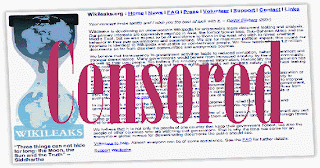“The Seattle Symposium on International Trade Issues in the First Decades of the Next Century was held at the Washington State Convention and Trade Center in Seattle, Washington on 29 November 1999, on the eve of the World Trade Organization’s (WTO) Third Ministerial Conference, which is to take place from 30 November-3December. Approximately 1500 delegates, comprising representatives of WTO Member States, intergovernmental organizations(IGOs), non-governmental organizations (NGOs), and journalists, participated in the Symposium, which was webcast live. He noted that it was Clinton who proposed that the WTO host a day for NGOs so that they would have an opportunity to voice their concerns and that the Symposium represented the first time in 50 years that NGOs have been given such a voice” (WTO).
Non-governmental organisations (NGOs) that descended on Seattle were a model of everything the trade negotiators were not. They were well organised. They built unusual coalitions (environmentalists and labour groups). They had a clear agenda to restrain the talks and outcomes. And they were masterly users of the media.
The combat of Seattle is only the latest and most evident recent NGO success.
 Yet the breaking point was the Earth Summit in Rio de Janeiro in 1992, when the NGOs provoked enough public pressure to push through agreements on controlling greenhouse gases. In 1994, protesters conquered the World Bank's anniversary conference with a "Fifty Years is Enough" campaign, and forced a rethink of the Bank's goals and methods. In 1998, an ad hoc coalition
Yet the breaking point was the Earth Summit in Rio de Janeiro in 1992, when the NGOs provoked enough public pressure to push through agreements on controlling greenhouse gases. In 1994, protesters conquered the World Bank's anniversary conference with a "Fifty Years is Enough" campaign, and forced a rethink of the Bank's goals and methods. In 1998, an ad hoc coalition of consumer-rights activists and environmentalists helped to descend the Multilateral Agreement on Investment, a draft treaty to complement rules on foreign investment under the support of the OECD. In the past couple of years an additional global coalition of
of consumer-rights activists and environmentalists helped to descend the Multilateral Agreement on Investment, a draft treaty to complement rules on foreign investment under the support of the OECD. In the past couple of years an additional global coalition ofNGOs, Jubilee 2000, has pushed effectively for a dramatic reduction in the debts of the poorest countries. However, NGO’s agendas are not only limited to economic issues. One major success in the 1990s was the campaign to outlaw landmines, where hundreds of NGOs, in concert with the Canadian government, pushed through a ban in a year. Nor are NGO’s narrowed to government agendas. Nike has been targeted for poor labour conditions in its overseas factories from NGO organizations.
Interestingly, it must be addressed that NGO’s likewise influencing public opinions with an immense impact. To achieve one’s goal, be it National interest or NGO’s targets, the attractiveness and constitute character of a state or NGO’s philosophies for the use of ‘soft power’, to pursue each interests are an ever increasing diplomatic streak. The terminology ‘soft power’ was invented by Joseph Nye and is as follow defined: ‘Soft power rest on some shared values and soft power means getting others to want the same outcomes you want’ (J. Nye, 2004: 111). Let me explain what I mean: The Fairtrade organization set up 1992 by five leading international development NGO’s, with his mission to improve the lives of poor and marginalised farmers and workers in developing countries by promoting fairer forms of trade, achieved

“the growth in public awareness of Fairtrade it has enabled the foundation to take the complex, distant issue of trade, development and poverty
outside of their usual audience into the mass market. It is widely recognised that one of the most effective ways of eradicating poverty in developing countries is to establish successful and sustainable economic activity. Fairtrade has proved to be an extremely successful model of how people-centred development can effectively reduce poverty and improve livelihoods”. (Fairtrade, 2007
As we discovered earlier NGO’s shared their times of success on trade and environmental solutions. The impact of NGO’s will further succeed and growing on influence, and therefore I believe it deserves the wholehearted Government & Public support.
References:
- Nye Joseph S. (2004), Soft Power: The Means to Success in World Politics , New York: Public Affairs
- http://www.wto.org/english/thewto_e/minist_e/min99_e/english/ngo_e/sdvol34no1.pdf
- Sanjaya Baru http://www.nepalitimes.com/issue/2010/09/10/Comment/17450
- Fairtrade http://www.blogger.com/•http://www.fairtrade.org.uk/includes/documents/cm_docs/2008/f/fairtrade_foundation_idc_submission.pdf
WTO






















